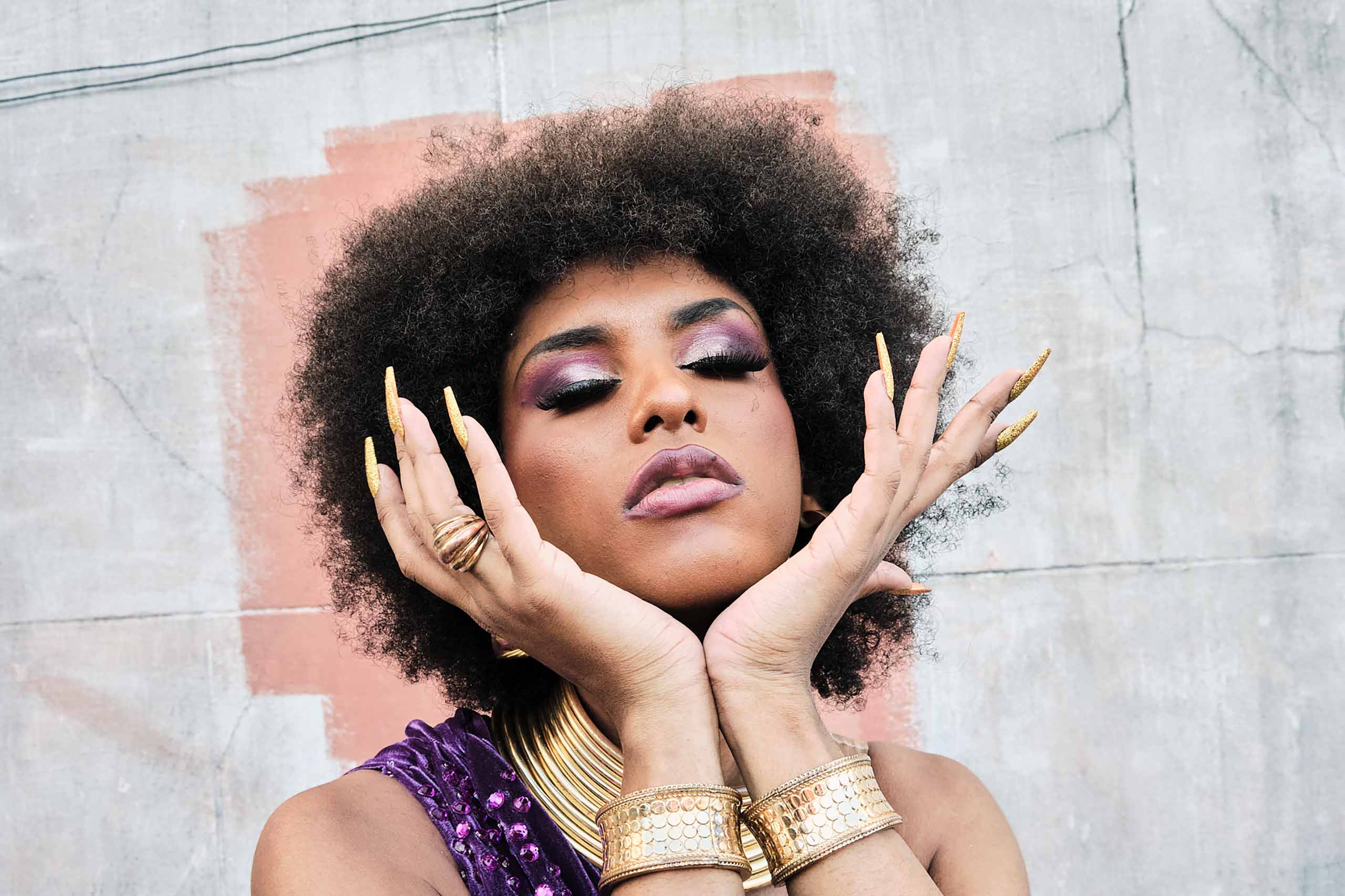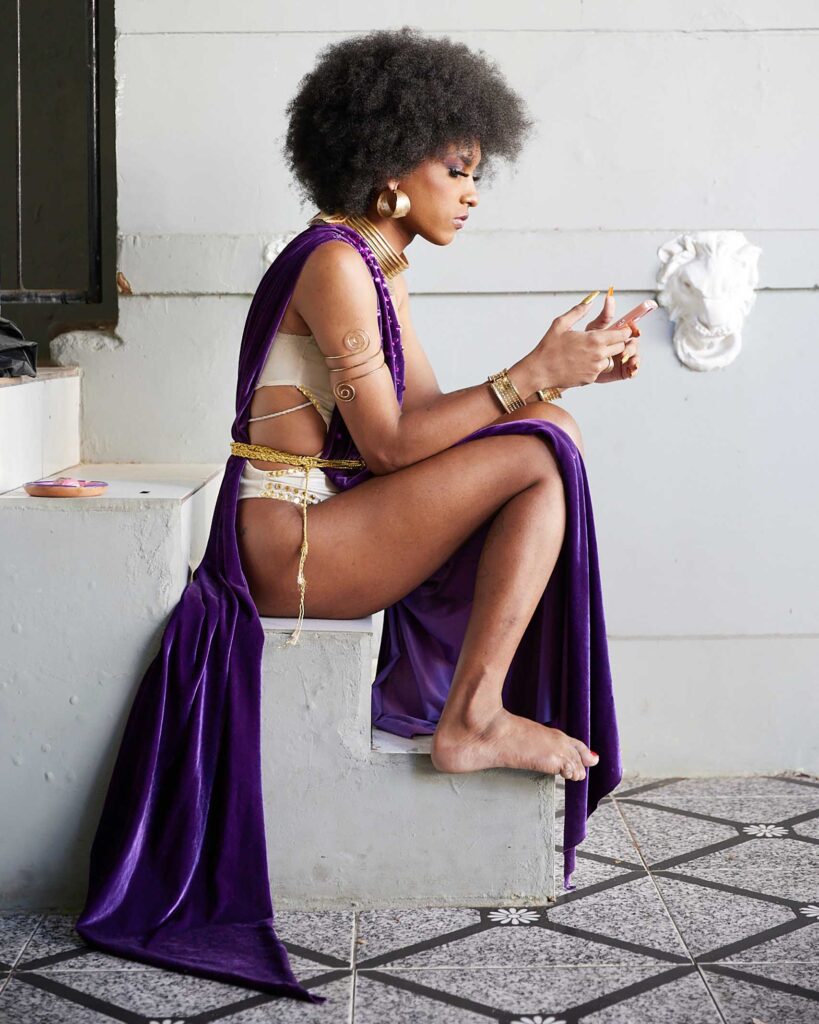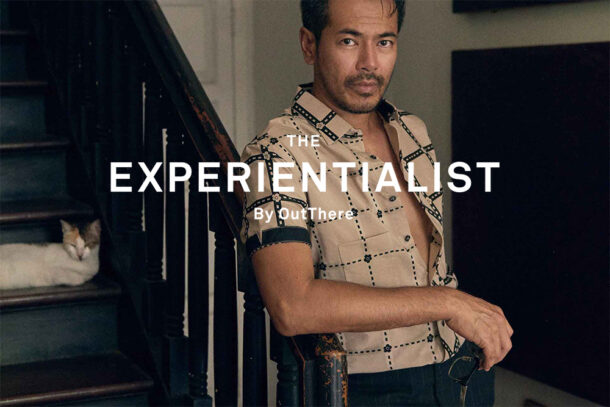Born in a small Bahia country town, DJ, dancer, activist and founding ballroom house mother Nola Criola was made in Salvador. Inspired by its culture, spirituality and energy, she’s now a shining star of its clubbing and ballroom scenes. Here, she shares her story.
I grew up in Itapicuru, a sunbaked town in Bahia’s backcountry, where the rhythms of the Northeast still pulse through quadrilla junina dances and pífano bands. I explored relatives’ farms and connected with animals, nature and local traditions. Later, as a teenager, the internet expanded my worldview, sparking self-discovery and shaping my aspirations.
Moving to Salvador at age 15 was the turning point – a cultural explosion that shattered my adolescence. The city overwhelmed me with its vibrant energy, opening doors to endless possibilities. There, I became an unstoppable force.
My sister (who was already living in Salvador) became my guide to the city’s vibrant culture. My parents had sent me there for high school, but she gave me something far greater: Sundays spent at open-air fairs, immersed in art, music, and theatre. Those experiences, amplified by the restless energy of adolescence, shaped me into the defiant, creative woman I am today.
In high school, I joined the dance team. I hadn’t transitioned yet, and I was the only dancer in the corps de ballet, which ignited my passion for movement. The university sparked yet more discovery. I found thousands of possibilities. I also became involved in student activism, which allowed me to travel around Brazil. That’s when Nola Criola, my drag identity, first strutted into existence – part protest, part glitter rebellion.
Salvador’s alchemy, where Afro-Brazilian roots, rebellious art, and oceanfront energy collide, made Casa Criola inevitable. Casa Criola, the ballroom house and family I founded, was destined to exist. A friend asked to bring a boy she was staying with to my home. His shyness bothered me at first, but I got him to open up talking about movies and pop divas. When he left, I held him and said, “If you ever need to talk, here’s my number. My door is always open”. Three days later, my daughter, Isabela, was ‘born’. She knocked on my door and said, “I’m a travesti. I need a mum and I chose you. Could you guide me?” I immediately replied, “Come in, then. You’re my daughter now. Let’s begin.” And so, Casa Criola came into being.
Casa Criola operates as an independent initiative. We hold balls when we can raise funds, or gather a little money by selling raffle tickets or contacting the Secretary of Culture or a private initiative to sponsor us. @ballroomba is a good place to find out what we and other houses are doing next. I also DJ at our balls, but also play funk, pagodão and house at club nights and parties around the city, such as Paulilo Paredão, O Pente, Beat ON Beat and Batekoo.
In the city, I’m drawn to places like Farol da Barra by Barra beach, where the lighthouse watches over the Atlantic, and the Ribeira district, a former fishing village where you’ll find the Sorveteria da Ribeira, an ice cream place everyone loves. Ribeira’s now home to my favourite hole-in-the-wall bars. I love Penha Beach there, where locals gather to celebrate the day’s end under those salmon-pink sunsets. Then there’s Gamboa, a mosaic of communities like Solar do Unhão and Gamboa de Cima e de Baixo, cradled by the Todos os Santos Bay.
Of course, Pelourinho needs no introduction. Its candy-coloured colonial façades are the very heartbeat of Salvador. But just a cobblestone’s throw away, Santo Antônio Além do Carmo offers quieter magic, bohemian cafés and wonderful bay views.
Salvador is a city of contradictions, overflowing with artistic power yet sometimes struggling to harness it. We’ve let big brands exploit our creativity while concert halls dictate the scene, enforcing strict standards that ignore the raw potential of diverse artists. As a black travesti, I won’t pretend it’s easy. But by infiltrating these spaces and speaking up, I’ve carved cracks in the system.
(Note: distinct from trans woman, travesti – literally, transvestite – is a traditionally pejorative word that has been reclaimed by many across Latin America and the Caribbean. It denotes people assigned male at birth who identify with feminine gender identities without necessarily seeking medical gender-affirming treatment).
I’m grateful Brazil’s wave of conservatism has receded. I no longer feel as afraid to walk down the street as before Bolsonaro lost the election. Making a living from art wasn’t a choice, and it’s never going to be easy, but moments of exchange with other artists make us feel supported and mobilise a little strength to continue our work.
I’m thrilled to be doing what I do. I’m proud of the person I’ve become, surrounded by people I like. I’ve built a family from scratch, turned chaos into art, and made Salvador love me back.
Photography by Martin Perry. As told by Nola Criola to and translated by Natalie Soares







